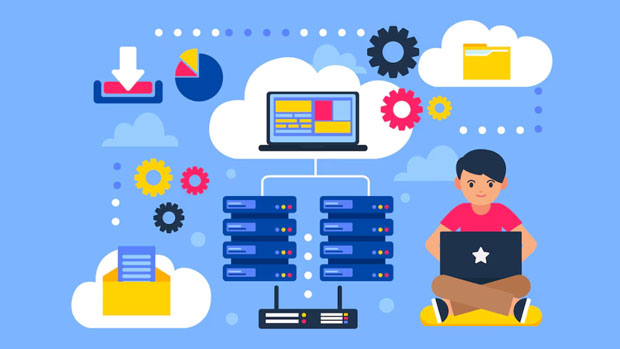When considering the purchase of proxy server static IPs, understanding key performance indicators (KPIs) is essential for ensuring your investment aligns with your specific requirements. Static ip proxies are used to maintain a consistent online identity, offering various benefits for business operations, web scraping, and security. However, to make an informed decision, it's crucial to evaluate several performance metrics that can significantly affect the effectiveness of your proxies. These factors include connection speed, security, reliability, and geographical distribution, which can greatly impact your online activities. This article will break down these key performance indicators in detail to help you make a better purchasing decision. 1. Connection SpeedOne of the most critical aspects of choosing a proxy server static IP is its connection speed. A fast and reliable connection is vital for tasks such as browsing, data scraping, or running web automation scripts. The latency and throughput of your proxy determine how quickly your requests are processed, which in turn affects the efficiency of your operations. Latency refers to the delay in communication between your client and the proxy server. Lower latency is crucial, especially for real-time applications, where delays can result in inefficiencies or errors. A good static ip proxy should ideally offer low latency to ensure that your actions, whether browsing or accessing data, are performed swiftly.Throughput refers to the amount of data transmitted per unit of time. The higher the throughput, the more data the proxy can handle, making it suitable for large-scale operations. If you're using proxies for high-volume tasks like web scraping or data extraction, higher throughput will allow you to process more requests in less time, thus enhancing overall productivity.2. Security and Privacy FeaturesSecurity is a paramount concern when selecting any type of proxy service. Static IP proxies often provide more stable and secure connections compared to dynamic IPs, but they are still susceptible to certain vulnerabilities. The key factors to evaluate in terms of security include encryption and anonymity.Encryption ensures that the data sent between your system and the proxy server remains secure. Ideally, proxies should support advanced encryption protocols, such as SSL/TLS, to safeguard your communications from potential hackers or surveillance entities.Anonymity is another important metric. A static IP proxy can offer anonymity by masking your real IP address, but the level of anonymity provided varies. Proxies that support anonymous or elite modes offer higher levels of security, hiding not only your IP address but also other identifying information, which is crucial for maintaining privacy, especially during sensitive activities.3. Reliability and UptimeReliability and uptime are critical for ensuring that your proxy service operates without interruptions. A reliable proxy server should have 99.9% uptime or better. Downtime can significantly impact operations, especially for businesses or individuals who rely on proxies for daily activities like data scraping, browsing, or securing online transactions.Reliability also extends to the consistency of the connection. The proxy should consistently deliver stable performance, free of fluctuations in speed or connectivity. An unreliable proxy can result in intermittent downtime, which can be frustrating and time-consuming.4. Geographic Coverage and IP PoolThe geographic location of the proxy server is crucial, especially if you need to access region-specific content or services. Proxy server static IPs are often used to mask the user’s location, and depending on your needs, you might require proxies from specific countries or regions.For tasks like web scraping, you may need proxies from a diverse range of locations to avoid detection or rate-limiting from websites. A proxy provider with a large and diverse IP pool ensures that you can rotate IP addresses efficiently to maintain anonymity and reduce the chances of being flagged by target websites.Having access to proxies in specific countries is especially beneficial for businesses seeking to expand internationally or for users attempting to access geo-blocked content. Ensure that your proxy provider offers an extensive list of available locations that match your operational needs.5. Bandwidth LimitationsBandwidth limits directly impact how much data you can transfer via the proxy. Some proxy services have strict bandwidth limitations, which can slow down your operations, especially if you're dealing with large amounts of data or high-frequency requests.It is essential to evaluate the bandwidth allowance of the proxy server. If you're purchasing static IP proxies for high-traffic tasks, such as large-scale data scraping or running numerous online operations simultaneously, make sure that the provider offers sufficient bandwidth to meet your needs without throttling or interruptions.6. Customer Support and ServiceAnother often overlooked but essential aspect of purchasing proxy server static IPs is the quality of customer support. Any issues with connection or configuration can lead to wasted time, which is why responsive and efficient support is vital.Look for proxy providers that offer 24/7 customer support, preferably through multiple channels such as live chat, email, or phone support. The support team should be able to assist with troubleshooting, setup, and other issues you may encounter. Furthermore, some providers offer technical documentation or user forums, which can be helpful for resolving common problems on your own.7. Cost and Value for MoneyFinally, the cost of the proxy service should align with your budget, but it is essential to consider the value for money rather than just the price. While cheaper proxies may seem attractive, they might lack the speed, security, or support needed for reliable and efficient operations.On the other hand, more expensive proxies may offer premium features, such as higher bandwidth, advanced security, or more extensive geographic coverage. Always evaluate what you're getting for the price. Compare different proxy providers and ensure that the service meets your specific requirements, whether for web scraping, maintaining privacy, or securing online activities.ConclusionIn conclusion, when purchasing proxy server static IPs, understanding the performance metrics that matter most—such as connection speed, security, reliability, geographic coverage, bandwidth limits, customer support, and cost—will help you make an informed decision. By evaluating these factors carefully, you can select a provider that not only meets your operational needs but also delivers reliable, secure, and efficient performance. Whether you're engaging in web scraping, online browsing, or securing your data, the right static IP proxy can significantly improve your online activities while ensuring optimal results.
Aug 19, 2025



































































